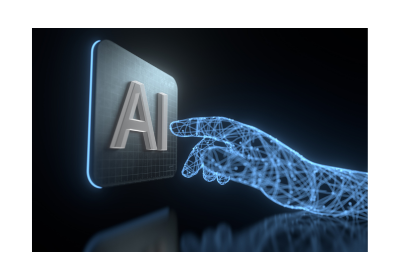Faculty Event on the Use of AI for Research and Education
Using artificial intelligence in Research and Teaching is in all our minds. Since there is not much guidance yet, we would like to exchange ideas and experiences with all staff members regarding the use of AI at our Faculty about brainstorming research ideas, editing texts, educational tasks, assessment and others. The purpose is to learn about what AI can do and discuss how we want to deal with it in the future.
Programme:
Download here the printable version of the programme.
10.00 – 10.20h: Short introduction to AI and UM’s steps so far - Chair: Anke Moerland
The use of AI is posing challenges to our academic work. We will update about recent initiatives at UM regarding the use of AI within our community. Jerry Spanakis will then introduce us to characteristics of Generative AI that we need to know about when using it in one or the other form in education and research.
10.20 – 11.20h: AI in education and assessment - Chair: Alice Giannini
(Generative) AI presents a range of opportunities for the development and delivery of educational activities. As these tools continue to develop, they will play an increasingly prominent role in teaching about research and writing skills. However, there is a pressing need to develop clear policies on the responsible use of AI in education. This panel will consider the perspectives of different participants in educational activities at the Faculty, with a view to fostering dialogue and reflection on both the potential and risks of such technologies.
- A teacher’s perspective on AI, by Kasper Dziurdz (10min)
- A students’ perspective on AI, by Marta Michałowska and Nandika Singh (10min)
- Reflection on what LLMs mean for educational design, by Nicole Kornet (10min)
- Panel discussing AI in education and assessment, with Lukasz Dziedzic and Marjon Weerepas as panellists
11.20 – 12.00h: AI in research - Chair: Michael Erard
Ethical use of generative AI-based tools can by no means substitute the core of the creative work of researchers. They can, however, assist in research based and research-related activities such as preliminary collection of literature, text improvement and preliminary drafting of grant proposals. In such a way, AI can help de-cluttering our cognitive spaces, freeing band-width, time on the one hand, but also creating further opportunities for collaboration and exchange of ideas. In this panel, we would like to invite you to reflect on how this can be done, discussing practical examples, how we want to employ them, potential challenges, necessary skills and further ethical questions.
- AI as a research assistant aspiring to be co-authors?, by Karolina Podstawa (10 mins)
- Gen AI editors in service of the author, by Gabriel Campbell (10 mins)
- Panel discussing AI in research, with Michael Erard, Donna Yates and Anke Moerland
12.00 – 12.40h: Lunch (in room B0.006)
12.45 – 13.15h: Discussion in breakout sessions
After the presentations and panel discussions, participants will split into two break out rooms (Education/Assessment and Research). The discussion amongst the participants will be stimulated by a set of prompts formulated as open questions. The purpose of the break out rooms is to offer a safe space for participants to discuss questions and best practices, but also concerns regarding the use of AI within our community.
- Education and assessment (facilitator: Alice Giannini) in room Feestzaal B1.113
- Research (facilitator: Karolina Podstawa) in room B0.118
13.20 – 13.30h: Sharing main discussion points and closing remarks (in room Feestzaal B1.113) - Chair: Anke Moerland
AI resources
Generative AI
https://www.kuleuven.be/english/genai
How Large Language Models Will Transform Science, Society, and AI
Generative AI: A Creative New World
AI & Education
Homepage - Artificial intelligence & Assessment - UMployee (maastrichtuniversity.nl)
https://nationalcentreforai.jiscinvolve.org/wp/2024/03/04/generative-ai-primer/
https://tilburg.ai/2024/01/best-ai-education-tools/
AI & Research
European Research Area Forum’s Living Guidelines on the Responsible Use of Generative AI in Research
ERC Foresight report (Dec 2023) on the impact of AI in social sciences research: https://erc.europa.eu/sites/default/files/2023-12/AI_in_science.pdf

Faculty of Law
Hosted by Law Events Office
Contact: chantal.meertens@maastrichtuniversity.nl
Registration required.
Also read
-
01 Jul 12 Jul
-
08 Jul15:00 - 16:00
FACILEX Online Workshop
This online workshop is conducted within the framework of the international research project "Facilitating mutual recognition: Analytics and Capacity building Information Legal eXplainable tool to strengthen cooperation in the criminal matter - FACILEX) of the Justice Program of the European Union...